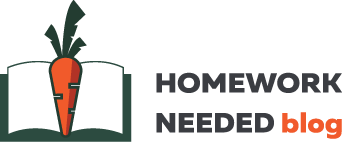
If you happen to associate human hard and soft skills with computer hardware and software, then I’m definitely giving you a virtual high five.
It means that now you and I agree on the fact that a hard skill is something natural you are supposed to be equipped and operate with when you enter the world of adults. To give you an example, reading and writing are among your basic hard skills.
On the contrary, a soft skill is something like a program that you need to install and use in particular situations. But the earlier you launch it and the more smoothly it runs, the higher your chances to succeed are. Those creativity and decision-making, which are on everyone’s lips today, are your soft skills.
Of course, some nitpicking professors in Sociology or Psychology might consider that to be a not very smart comparison (that’s why they regard essays as a must, so be sure to check our assignment writing help). But if you somehow meet one of such great minds, just ask them (very politely, though) to help you provide clear, explicit definitions of the terms “hard skills” and “soft skills”.
You’ll see, they’ll definitely like your hi-tech association.
The thing is that there is no one-size-fits-all interpretation of a human hard and soft skill. Yes, the differences between them are obvious. We’re going to discuss them below. However, it is debatable whether or not the sets, settings and parameters of hard and soft skills can be universal for people of different professions and characters.
Let’s dig deeper into the topic in this research essay and try to come up with a solution.
The Origins of the Terms
Remarkably, both terms are believed to come from the military sphere. In 1959, the United States Army began to develop a scientific approach to military training. The conducted research proved the importance of both professional competences (identified as “hard skills”) and more universal, unmeasurable competences, which appeared to be almost unteachable (identified as “soft skills”).
The initial difference between hard and soft skills was interpreted in “Systems Engineering of Training”, a training doctrine of the U.S. Army introduced in 1968. According to this document and put simply, hard skills mean a professional capability to get along well with technology and weapon. Soft skills, in their turn, should be referred to as skills involving more interaction with people as well as paperwork.
Naturally, in almost 60 years the terms have evolved, along with the changes in human relationships at different levels and in different spheres. Nowadays, they are widely used not only in sociology and psychology but also in business and entrepreneurship.
Now let’s consider hard and soft skills in more detail by analyzing their main contents.
Today our task is to define whether one category of skills can be more important and helpful than the other one, or it is the healthy balance between hard skills and soft skills that makes a good worker and a harmonious personality.
Hard Skills Features and Examples
Above I’ve mentioned two of them: reading and writing. But they only begin the long list of various more specific and profession-oriented abilities.
When searching for some smart and interesting info for this essay, I couldn’t help wondering that different authors explained what hard skills were by contrasting them to soft skills. And vice versa. As a result, the entire definition seems to be locked in a vicious circle.
I don’t know how about you, but my professor in Logic was always against interpretation via contrast. Now I realize why. So, I’ll try to give you a more thorough explanation of hard skills based on their main characteristics.
These skills are:
- Teachable
In primary school your teachers provided you with the understanding and knowledge of such activities as reading, writing, counting, probably typing, and even speaking. Plus, they gave you an opportunity to practice these basic skills regularly.
The same is true for middle and high school, where you were gradually taught more and more complex things like literature, algebra, some essentials of computer science, etc. Therefore, the hard skills of writing good essays or solving math problems influenced your choice of college or university major.
In college or university you gain new, more detailed and systematized knowledge of the selected subject area. Lucky are you if you also have practical classes! Professional knowledge plus the ability to put it in practice eventually form a hard skill in a particular sphere.
- Learnable
It would probably be more accurate to characterize hard skills as self-learnable. And you are absolutely right if you are thinking about self-education now.
If you study, say, biology at university but want to combine it with programming in order to create an amazing scientific project, you are going to master hard programming skills. (Here in every sense of the word “hard”.)
And you can do it yourself, using only online tutorials and your desire to learn something new. You’ll be able to apply the skills you develop, monitoring your own learning progress. By the way, the progress in skills development can be related to the following feature of hard skills.
- Measurable
Yes, if we are speaking about school, college, or university studies, your professors use grades to assess the quality of your knowledge and its practical application. And an online university where you are taking a course in programming probably uses its own, special principles of evaluating your progress in self-learning.
Whatever it is – numbers, letters, or any other weird symbols – the main purpose of the chosen measure is recording the development of your knowledge and skills. Besides, they can be assessed either in regard to separate units you study or in their complex entity (in a final exam, for example).
If we try to go a little beyond student competences and take a look at the way a company’s employee can assess his or her own progress in developing hard skills, we’ll see that its indicators are very apparent too.
For example, the increase in company’s sales, measured in currency or other units, is the evidence that its sales or marketing managers definitely know their cups of tea. However, that’s the case when their soft skills also weigh much. But we’ll discuss them in the second part of this research essay.
- Certifiable
When you complete an online course in programming, you receive a certificate that confirms your participation in this course and records your success in it. When you graduate from university, you get a diploma that confirms your degree (and the fact that you’ve completed the 4 or even 6-year survival program). Congrats!
That’s how you know that your education provides you with hard skills which are supposed to help you choose your life path. It’s another question, though, how helpful they turn out to be in the future, but I’m sure you’ve got what I mean.
I apologize if by writing mostly about university, I’m making you think that hard skills can be acquired and developed only in the process of education. If you are working part-time now, most of the requirements and duties set by your employer can also be referred to as the hard skills you are expected to have or be willing to learn and develop.
By the way, you’d better remember these requirements and duties well. They will help you complete a fine resume for your next job.
- Unchangeable but developable
Whatever some educators say, you won’t forget how to write with a pen if you’ve been typing your essays and messages for years. Neither will you forget how to play guitar or skate if you tried to do it at least once, five years ago, and if that experience proved to be rather successful.
Of course, you will forget some more complicated chords or movements. But if you take a guitar once again or go skating today, you’ll be surprised by how easily you can remember the basics of these activities. What’s more, you’ll still be able to upgrade them if you practice regularly and enthusiastically.
It means that even time can’t deprive you of your hard skills, though, yes, it can certainly worsen them. The more you use them in your daily routine, the more natural for you they become. That’s why you can be a perfect physicist, programmer, or violinist.
If you’d like to find the full list of hard skills, check this site.
I’ll tell you more about soft skills in Part 2.
Follow the blog on our homework service and stay updated!

